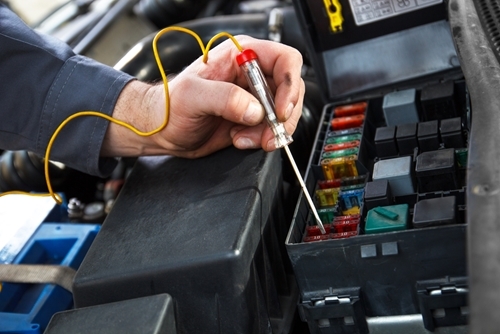Care Equipment Battery Maintenance Guide | HCSUK & Able
Updated July 2025
Batteries power some of the most essential tools in a care home—from hoists and profiling beds to stand aids and mobility devices. But while these batteries are small, their failure can create big problems. When a hoist stops mid-transfer or a profiling bed can’t adjust, the risks to safety and care delivery increase dramatically.
That’s why consistent care equipment battery maintenance is essential. In this guide, we’ll explore how to care for your batteries, when to replace them, and how to reduce downtime with staff training and proactive servicing.
Why Care Equipment Battery Maintenance Matters in Care Homes
Many types of care equipment rely on rechargeable batteries, especially devices that support safe moving and handling. However, these batteries wear out over time—faster if not properly cared for.
Failing to maintain batteries can lead to:
-
Unplanned equipment failures
-
Disruption to care routines
-
Increased manual handling risks
-
Higher costs from emergency repairs
-
Shortened equipment lifespan
On the other hand, regular battery care for hoists, beds, and other equipment helps ensure:
-
Fewer breakdowns and less downtime
-
Greater safety for staff and residents
-
Longer-lasting equipment
-
Better compliance with servicing standards
Caregivers often rely on these devices daily. That makes battery maintenance in care homes a shared responsibility between your staff and your servicing provider.
How to Maintain Care Equipment Batteries for Reliability and Safety
A well-maintained battery will perform better and last longer. These simple practices can dramatically improve battery health across your care home:
1. Charge Batteries Correctly
Avoid letting batteries discharge completely. Recharge after daily use or at the end of every shift. This is especially important for sealed lead-acid (SLA) batteries, which are common in mobile hoists and stand aids.
2. Don’t Overcharge
Leaving batteries permanently plugged in can degrade their capacity over time. Use chargers with automatic shut-off if possible, and always follow the manufacturer’s guidance.
3. Store Equipment Properly
Keep equipment in areas with moderate temperatures. Batteries perform poorly in extreme heat or cold, and exposure can cause long-term damage. If equipment isn’t used daily, plug it in at least once a week to maintain charge.
4. Perform Visual Battery Checks
Train staff to spot early signs of battery wear—such as bulging, leaking, or corrosion around terminals. These indicators suggest the battery needs urgent attention or replacement.
When to Replace Batteries in Care Equipment to Avoid Downtime
Even with good care, batteries don’t last forever. Most should be replaced every 12–24 months, depending on usage. Warning signs include:
-
Equipment not holding charge
-
Long charging times
-
Flashing or missing battery indicators
-
Sudden power loss during use
To avoid unplanned failure, include regular battery checks as part of your scheduled maintenance plan. If you work with a professional partner like Able, you can rely on expert inspections and timely replacements.
Training Staff on Battery Care for Hoists and Mobility Equipment
Caregivers are on the front line—they use battery-powered equipment daily. That’s why giving them basic training on equipment and battery care is so effective.
Staff can learn to:
-
Charge batteries correctly
-
Recognise early warning signs
-
Safely store equipment
-
Log and report faults quickly
If you're unsure where to start, check out our article on basic maintenance training for care equipment, which outlines the benefits of staff-led upkeep. You can also explore our available training courses for more structured support.
Add Battery Checks to Your Care Equipment Servicing Plan
Battery checks shouldn’t be an afterthought. Include them in your standard care equipment maintenance schedule and servicing contract. During LOLER and PUWER inspections, your provider should assess battery condition, test charging functionality, and recommend replacements when needed.
Our partners, Able, have servicing packages that include asset tracking, service reminders, and full testing—so you never miss a critical battery check.
Need Support? Let’s Keep Your Equipment Powered
If you’re concerned about battery reliability or need help reviewing your equipment servicing routines, get in touch with Able. As a trusted partner, they’ll help you assess battery condition, manage replacements, and support your team with expert advice.
Conclusion
Good batteries power good care. When you prioritise care equipment battery maintenance, you protect residents, empower caregivers, and reduce avoidable disruption. With the right routines, reliable partners, and informed staff, you can keep every device charged, safe, and care-ready.



